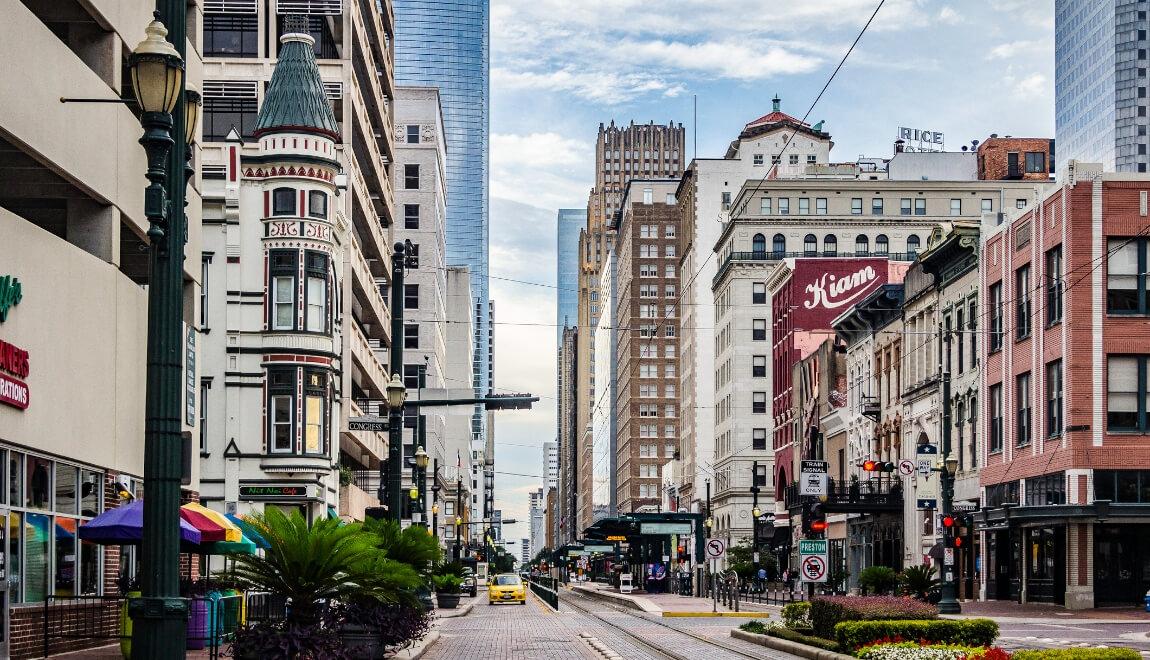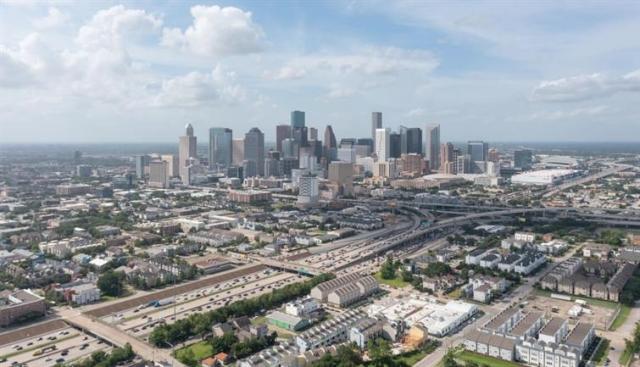Houston is one of America’s hottest destinations. Warm weather, cultural diversity, and amazing food are just a few of the reasons so many people – just over 2.2 million– call Space City home. If you’re considering hanging your hat in this Texas metropolis, read on for pros and cons of retiring in Houston.
Pros of Retiring in Houston, Texas

The World on Your Plate
Houston is a diverse city. One of the many benefits of that diversity is a cornucopia of delicious cuisine. From Cajun to Vietnamese, German to Moroccan, you’ll find it in Houston’s restaurants. You’ll also enjoy some of the region’s best Tex-Mex and authentic Mexican eats.
Warm Weather
Sure, you’ll have to sweat through some blisteringly hot summer days, but that means you’ll never have to shovel snow or worry about falling on ice. Houston is warm or temperate most of the year. The average high even in January is 62 degrees Fahrenheit. On average, the temperature dips to the freezing mark just 18 days a year.
Dozens of Day Trips
Houston is located near the Gulf of Mexico, which boasts beautiful beaches comparable to those in Florida. Galveston and Galveston Island, just 50 miles from downtown Houston, are especially popular. Venture a little to the south or east and you’ll find two major wildlife refuges, Brazoria National Wildlife Refuge and Anahuac National Wildlife Refuge, which are also worth exploring. To the north lies Sam Houston National Forest.
Low Cost of Living
If you want to live in the core of Houston, you might suffer sticker shock when looking into rental prices. However, the overall cost of living in Houston is 10 percent lower than the national average. Housing costs are 22 percent below the national average. Furthermore, there’s no state income tax in Texas. Just realize that the tradeoff can be a higher sales tax and property tax. Fortunately, however, both Harris County and Houston City offer generous property tax exemptions for residents ages 65 and older.
Cons of Retiring in Houston

Lots of Sprawl
As the fourth most populous city in the country, Houston puts the “sprawl” in urban sprawl. Although many neighborhoods are walkable, don’t expect to do much outside your immediate area if you don’t have a car. Houston also isn’t as lively as its hip cousin, Austin, so it might not be right for transplants from happening places like New York City or Los Angeles.
Lots of Traffic
Traffic can also be a hassle in Houston, as it is in many big cities. Houston is often ranked among the most traffic-clogged cities in the country. However, as a retiree, you have an advantage over the 9-to-5 crowd since you may be able to avoid rush hours altogether. If you prefer not to drive, the city’s METRORail can get you to downtown, the theater and museum districts, the Texas Medical Center, and NRG Park.
Lots of Humidity and Pollution
With all that traffic and hot summer weather come the miseries of humidity and pollution. By one measure, you can expect “miserable” humidity for good parts of July and August. The other parts will be merely “oppressive” or “muggy.” If pollution irritates you, you also might be out of luck – and breath – here. The American Lung Association’s 2022 State of the Air report scored Harris County, where Houston is located, an “F” for high ozone days and a “D” for particle pollution. This means that if you suffer from asthma, COPD, lung cancer, or cardiovascular disease, Houston may not be the best place for you.
Ready to retire in Houston?
If, after considering the pros and cons, you’re up for retiring in Houston, visit After55.com to find dozens of retirement communities in the Houston area.




